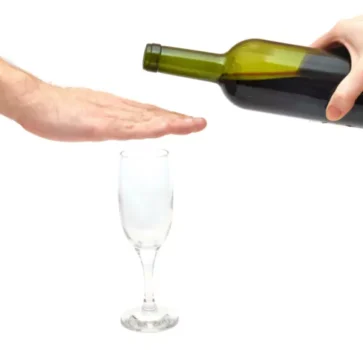
Group interventions may include group therapy, peer support group meetings, group outings during treatment, and alumni programs as a part of aftercare. So let’s raise a (non-alcoholic) toast to the power of community, creativity, and good old-fashioned fun in the journey of recovery. After all, a life reclaimed from addiction should be one worth living – and enjoying – to the fullest.
How BetterHelp Screens and Verifies Mental Health Professionals
After playing with them, transition into a discussion about the fallibility of our senses and point of view. Talk about how differently people perceive things based on who they are and the situation at hand. As a way of encouraging recovery progress, or supporting continued recovery success, many support groups use specific activities to keep their members engaged. Our DYC Brooklyn Center offers an outpatient program, serving 75 members and their families, in addition to housing for 16 resident-members.
Substance Abuse Group Activities That Empower Recovery

Writing personal letters about one’s recovery journey can be an incredibly therapeutic activity. Group members can write letters to themselves, their addiction, or someone who has supported them through their journey. These activities offer people in recovery a sense of purpose and a chance to give back to the community by focusing on the needs of others. Group reflection promotes self-awareness and emotional regulation, as participants learn from one another’s experiences and lean on each other for support. Improved communication and emotional growth contribute to positive treatment outcomes, reducing the risk of relapse and fostering a stronger support system.
Diphenhydramine Addiction: A Personal Journey Through Over-the-Counter Dependence
Self-care, like time in nature or enjoying a hobby, reinforces being gentle and patient during recovery. These supportive relationships addiction recovery group activities give you the encouragement you need to stay focused and committed to your recovery path. Engaging in physical challenges together helps build trust and camaraderie among group members. Overcoming obstacles as a team reinforces the idea that they can rely on each other for support. Role-playing also encourages group members to support each other. Watching peers handle scenarios can provide valuable insights and strategies.
Substance Abuse Group Therapy Activities for Recovery
Discover Senate Bill 1180’s impact on addiction and recovery, healthcare, and the future of treatment options. Explore drug detox to get free from addiction through holistic approaches and effective rehabilitation strategies. Discover how to transform your life by embracing healthy addiction habits and leading a healthier lifestyle.
These creative outlets can also serve as healthy coping mechanisms Sober living home to practice outside of the group setting, helping people manage stress and creatively process their feelings. We are dedicated to transforming the despair of addiction into a purposeful life of confidence, self-respect and happiness. We want to give recovering addicts the tools to return to the outside world completely substance-free and successful.
Practice Forms and Assessments

For those craving a bit more adventure, outdoor team-building exercises and nature walks offer a breath of fresh air – literally and figuratively. There’s something about the great outdoors that puts our problems into perspective and reminds us of the vastness of possibilities. For those who prefer the written word, journaling workshops offer a safe space to pour out thoughts and feelings onto paper. Guided writing exercises help participants explore their inner landscape, often uncovering insights that might otherwise remain buried. For a more introspective approach, try the Recovery Story Circle.
- Recovery isn’t just about staying sober – it’s about building a life worth staying sober for.
- It’s amazing how thinking on your feet in a supportive environment can boost confidence in real-world interactions.
- Addiction to drugs is a complex disease that can wreak havoc in the lives of individuals, families, and societies.
- This residential facility serves 86 adolescents and their families in upstate New York.
- Self-care, like time in nature or enjoying a hobby, reinforces being gentle and patient during recovery.
Learn About Self-Care

Our substance abuse treatment programs offer mental health counseling, medication-assisted treatment, and other evidence-based services to help you or your loved one stay sober. This article explores 50 substance abuse group activities designed to empower individuals in their recovery journey. From self-care practices to communication exercises, these activities encourage positive change, help build essential skills, and strengthen support networks. Exercise plays a crucial role in addiction recovery by improving mood and reducing negative emotions, which helps mitigate cravings through the release of endorphins. Engaging in physical activity enhances cognitive functions, including memory and decision-making skills, which are vital for maintaining focus on recovery goals. To prioritize self-care in recovery, individuals should craft a tailored self-care plan that highlights a blend of physical, emotional, and mental health activities.

Hearing how peers have navigated their struggles can provide new perspectives. Samantha Green, a psychology graduate from the University of Hertfordshire, has a keen interest in the fields of mental health, wellness, and lifestyle. You can invite guest speakers who specialize in alcohol and drug rehab or group members to share. You can display the art in a common area, such as an outpatient rehab or a community center. This will allow others to see what each individual has created and learn from their experiences. This motivation and focus on achievement as a team act as positive reinforcements, reducing the risk of relapse by redirecting energy toward purposeful pursuits.
- In other words, they acknowledge the thoughts without judgment and then gently return their attention to their breathing.
- Imagine a room buzzing with energy as participants craft their recovery vision boards.
- Habits are significant in daily behavior and can either support or hinder recovery.

Moreover, combining these nature-based approaches with traditional therapies can enhance recovery by equipping individuals with tools for emotional regulation and resilience. https://ecosoberhouse.com/ Outdoor activities also promote social connections among individuals in recovery. Participating in group endeavors, like nature walks or team sports, fosters friendships that build supportive environments essential for maintaining sobriety.




